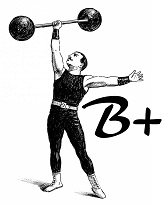He’s back, ladies and gentlemen. Christopher Nolan, the preeminent pacesetter of the modern blockbuster, the master of mesmerizing mainstream entertainment, has returned to rescue the world’s movie theaters from imminent doom. The precipitous decline in engagement that theaters have experienced in recent months has threatened their very existence. Some surmised that our current global predicament would mark the extinction of the conventional walk-in movie theater as we know it, but perhaps Nolan’s latest cinematic exploit is the shot in the arm needed for these establishments to remain on life support a little longer.
It’s had an arduous road to get here having been delayed on three separate occasions, but at long last, the mysterious, hotly anticipated “Tenet” has arrived. And it’s exactly the type of head-scratcher you’d expect from the guy who literally made a movie that told its story backwards.
Nolan has once again leaned into his proclivity to marry brainy science fiction concepts with traditional (ahem) tenets of blockbuster filmmaking, a technique he popularized with his 2010 smash hit “Inception,” and one he brought back with 2014’s “Interstellar.”
He tackled the heist film. He journeyed through space in a sci-fi adventure. And now, he’s set his sights on the spy movie.
James Bond meets “Inception?” Something like that.
With “Tenet,” the evil genius has really outdone himself. I can safely say, without divulging even an iota of specific information about the film’s plot, that the central concept of this movie is Nolan’s most mind-bogglingly audacious endeavor yet. And when you look up and down his prolific filmography, that’s really saying something.
The film swiftly combusts onto the screen with an opening set piece that hearkens back to the thrilling scale of one of Nolan’s earlier action films, the grand and bombastic “The Dark Knight Rises” (2012). Over the course of his career, Nolan has honed the art of the big dramatic action sequence, and if his dizzying work in “Tenet” proves anything, it’s that his movies possess the boldest, most ambitious—and ultimately most exciting— action scenes currently on the market.

Right out of the gate, the audience is thrust into the midst of thunderous, pulse-pounding spectacle, one of many such sequences sprinkled throughout the film’s formidable two and a half hour run time. Ludwig Göransson’s impressive musical score thumps along behind the proceedings, providing the film with an electrifying backbone.
If this rousing opening sequence tells us anything about the movie that lies ahead of us, it’s that things will be moving at a breakneck pace, you might not always have a complete grasp of what’s going on, and Nolan has no plans to slow down the show for you to catch your breath. It’s a little overwhelming. Upon my first watch, it was quite confusing. But as one of the film’s characters remarks at one point, “Don’t try to understand it. Feel it.” If you allow yourself to sink into the enthralling rhythm of Nolan’s creation, and do your best to get on its eccentric wavelength, your resulting viewing experience will be a wildly entertaining, if often disorienting one.
“Tenet” is so dazzlingly complex and original that it would be downright impossible to fully understand its intricate machinations after only watching it once. Like much of Chris Nolan’s work, it will undoubtedly benefit greatly from multiple viewings. While I was able to stumble my way through it on the first go and have a reasonable cognizance of the plot on a very basic level, I am certain that experiencing Nolan’s ridiculously ambitious vision for a second, third, even fourth time will allow me to catch on to the peripheral details that slipped through the cracks of my initial comprehension of what was going on.
Many will be turned off by Nolan’s seeming insistence that the film be as bewilderingly labyrinthine as possible, and I must admit, “Tenet” occasionally sputters beneath the incubus of its immense complexity. Nolan has once again crafted a cinematic puzzle, and while all the pieces are there for the audience to fit together, the storytelling sometimes suffers as a result of its convoluted structure.
Nevertheless, Christopher Nolan has delivered one of the most wholly original mainstream films in recent memory. Despite its imperfections, “Tenet” is an example of the type of bold, supremely ambitious blockbuster filmmaking that you simply don’t see very often. Nolan may have tripped up a little trying to outdo and outsmart his previous cerebral offerings, but in the end, he’s supplied audiences with a product of refreshingly elevated aspirations, and a reason to get back inside a movie theater.



1 Comment
Very interesting!
I hope to have the chance to see it soon … at least for the first vision …